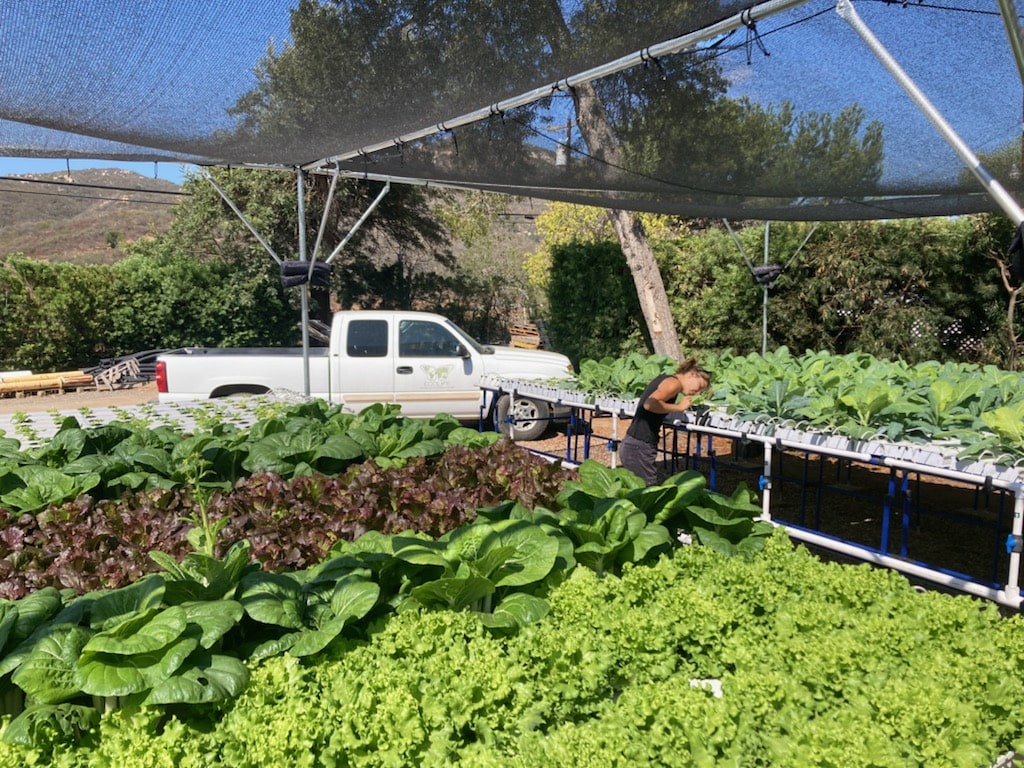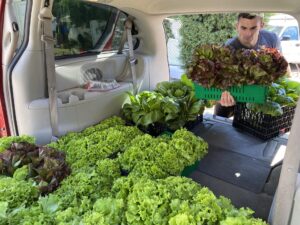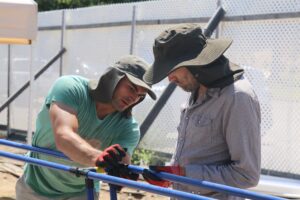Bringing Sustainable Agriculture to Communities Through our Aquaponics System

At ECOLIFE Conservation, we know that sustainable agriculture is the key to a sustainable future. Conventional agriculture can be damaging to the environment, natural resources, and can harm both humans and animals. Our focus on sustainable methods like our aquaponics system allows communities to establish sustainable food systems and provide economic opportunities to underserved communities across the world.
Issues Caused by Conventional Agriculture
Although it’s the most common form of agriculture, conventional agriculture uses synthetic chemicals in the form of pesticides, herbicides, and fertilizers to nourish and maintain crops. Conventional methods require high amounts of these chemicals as well as energy to generate crops.
In addition to this, conventional agriculture places greater importance on getting as much as possible from crops rather than simply producing what communities need. This approach is a large factor in conventional agriculture’s negative impact on the environment. It contributes to greenhouse gas emissions (GHGs), soil erosion, water pollution, and can even harm humans.
Sustainable Agriculture – Preventing Extinction and Supporting Communities
 Because of the large scale of conventional agriculture’s large-scale harm, we’ve placed our focus on sustainable agriculture. About 30% of all available land on Earth is used for conventional agriculture, which damages and destroys wildlife. Considering that habitat loss is the main driver of species extinction, it’s clear that this approach to farming needs to change.
Because of the large scale of conventional agriculture’s large-scale harm, we’ve placed our focus on sustainable agriculture. About 30% of all available land on Earth is used for conventional agriculture, which damages and destroys wildlife. Considering that habitat loss is the main driver of species extinction, it’s clear that this approach to farming needs to change.
Sustainable agriculture methods, such as our aquaponics system, allow communities to grow important produce without the use of harmful chemicals and pesticides. This makes all crops grown using sustainable practices safer, healthier, and prevents further pollution of lakes, streams, and watersheds.
Transitioning to more sustainable and efficient methods of food production can help combat food insecurity in communities around the world. We can safeguard our natural resources and improve community health by providing people with the means to grow nutrient-dense produce while using less land and water.
The Modular Aquaponics Response Kit (M.A.R.K.) – ECOLIFE’s Plan of Action for Sustainable Agriculture
 At ECOLIFE, we realized that there was a need to relieve the environmental stress caused by conventional agriculture while reducing global food insecurity. Based on this realization, our modular aquaponics system was designed. The modular aquaponics response kit (M.A.R.K.) allows users to grow fish and plants in a fraction of the space, resources, and energy needed for conventional agriculture. In fact, our aquaponics systems are solar powered, making the energy they do use clean and renewable.
At ECOLIFE, we realized that there was a need to relieve the environmental stress caused by conventional agriculture while reducing global food insecurity. Based on this realization, our modular aquaponics system was designed. The modular aquaponics response kit (M.A.R.K.) allows users to grow fish and plants in a fraction of the space, resources, and energy needed for conventional agriculture. In fact, our aquaponics systems are solar powered, making the energy they do use clean and renewable.
The M.A.R.K. combines aquaculture – the raising of aquatic animals – and hydroponics – the cultivation of plants in water with added nutrients – to provide communities with sustainable food production. Bringing these methods together creates aquaponics, a sustainable agriculture method that reduces the amount of water and land space needed to grow produce by 90% when compared to conventional agriculture.
In an aquaponics system, even waste produced by fish is converted by bacteria into nitrate, the most accessible form of nitrogen for plants. This nitrate is then consumed by the plants, which accelerates the plants’ growth and purifies the water for the fish. This creates a closed-loop system that circulates nutrients within the aquaponics system, eliminating runoff.
Serving Communities and Protecting Ecosystems With Our Aquaponics System
Our goal is the widespread adoption of sustainable agricultural methods like the aquaponics system in order to feed more people, prevent pollution, and reduce land and water use. To do so, we’re working to make aquaponics accessible to local communities.
In addition to that, the M.A.R.K. aquaponics system will allow us to bring sustainable agricultural practices to communities around the globe, regardless of their climate or resources. This allows us to help communities thrive while protecting their local ecosystems. Donate today to support our work with aquaponics!